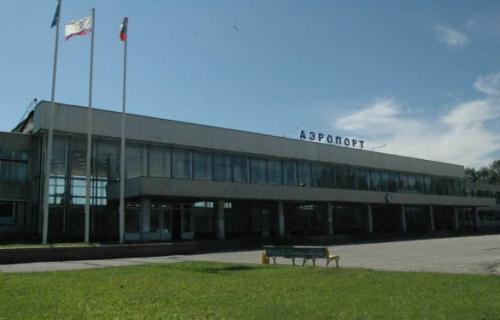
From Nikolaus von Twickel, Moscow Times: NATO and Russia pride themselves on cooperation over Afghanistan and the fight against terrorists and pirates, but a planned logistics hub to transport military hardware from Afghanistan is not taking off. . . .
The government offered NATO use of the airport in the Volga River city as a hub last year against fierce resistance from Communist and nationalist opposition activists, who object to letting NATO members use facilities in the country’s heartland. Ulyanovsk is the birthplace of former Soviet leader Vladimir Lenin.
But no alliance member has announced that it will use this option for troop withdrawal from Afghanistan, which is to be completed by next year.
The only cargo that has been sent through Ulyanovsk so far is a number of containers for the British contingent that were sent from Camp Bastion in Afghanistan to Britain in December. That shipment has been described as a "trial" by both NATO and Russian officials.
A senior diplomat from a NATO country told the panel that the route was considered too expensive. Experts from his defense ministry have calculated that shipping a container from Afghanistan through Ulyanovsk costs 50,000 euros, while sending it via the Termez airbase in Uzbekistan costs only 30,000 euros, the diplomat told The Moscow Times, asking not to be identified because he was not authorized to speak to the media.
But Yury Gorlach, a deputy director in the Foreign Ministry’s European department, argued that Ulyanovsk was worth the extra cost because it was safer. "When you send valuable cargo from Afghanistan, Ulyanovsk is an option," he said.
The senior NATO member diplomat suggested that alliance countries are reluctant not just because of financial reasons. "They do not like the idea that Russian intelligence can take a close look at what they send back from Afghanistan," he said. (via The Bug Pit)
From Joshua Kucera, The Bug Pit: It’s long seemed like this Ulyanovsk facility wasn’t the most economically sensible way to get things out of Afghanistan, and that it might be a strategic hedge against uncertainty surrounding transit routes through Pakistan and Uzbekistan. (And by the same token, it may also have been useful as a bargaining tool in negotiations with those countries.) And now that things are going relatively well in Pakistan and Uzbekistan, Ulyanovsk isn’t really necessary. It would be faintly ironic if the Russian government stuck its neck out with the unpopular, pro-Western move to set up Ulyanovsk — probably the most concrete example of genuine U.S.-Russian cooperation — and then no one used it. (photo: ulgov.ru)
Image: ulgov%207%209%2012%20Ulyanovsk_0.jpg
